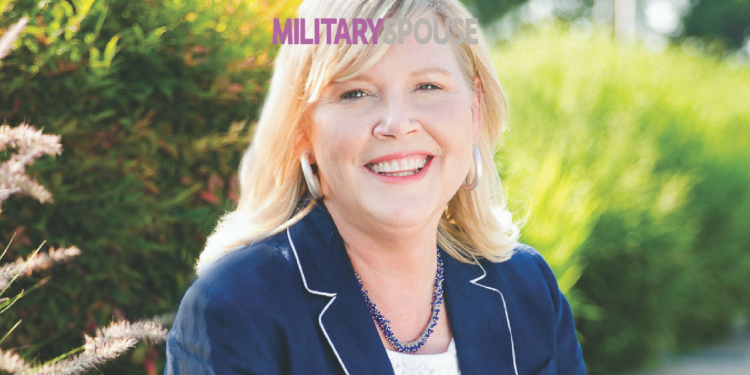When Everything Changed
Everyone remembers where they were when they learned about the terrorist attacks on 9/11. Suzie and Gen. Schwartz were stationed in Alaska, five hours behind New York City time. He was running when Suzie’s next door neighbor called and told her to turn on the TV. “It’s a searing memory,” she recollects. “We were gathered in my friend’s kitchen not knowing what to do, but all of us knowing our lives had changed. Shortly thereafter, my husband was assigned to the Pentagon and we were there as we launched the war in Iraq.”
Making a Tangible Difference
After 9/11 when the remains of fallen service members were returned to U.S. soil, they landed at Dover Air Force Base before making their final destination home. In 2008 President Bush reversed a rule and allowed family members to go to Dover to meet the casualties. Gen. Schwartz and Suzie flew up to also be there the first time news media and families were permitted to attend.
The flight was bringing three airmen home. “It can be a long process. There may be three different ceremonies depending on if the family requests no media, local media only or access to anyone,” Suzie explains. “We were in a small lobby of an old chapel waiting with a drop ceiling, fluorescent lighting and blue folding chairs. Each family was clustered in a group. I remember looking at these families and thinking this is not the place to come and grieve. When they come to Dover, it’s usually within about 36 hours of the notification of the death of their loved one. You don’t know what emotions they’ll be portraying at the time.” One family was deeply religious and took solace in having their chaplain there. One family was visibly distraught, sobbing. Another family was angry.
On the plane ride back to Washington, D.C., Suzie looked at her husband and said, “We can do better than that.” Meaning: The families need a soothing, comfortable space in which to wait and grieve. Six months later, the Center for the Families of the Fallen opened. Suzie contacted the USO and that organization also helped improve the family experience.
Next came a Fisher House at Dover AFB. Then a meditation garden that garden clubs from all around the country contributed to. “All of that came from that one setting of watching families and thinking our country can do better for them,” Suzie recalls. “Now Dover is a beautiful place where families can go at the worst time ever for them. That is part of my legacy.”
The Fisher House Foundation, which provides military families with housing close to a loved one during hospitalization for an illness, disease or injury, also has benefited from Suzie’s philanthropic heart. Suzie was bored while stationed in Hawaii and a neighbor managed the Fisher House there, where Suzie started volunteering.
Fast forward eight years to when Suzie lived in St. Louis. “I started being really involved with the community then and St. Louis was trying to build a Fisher House. That really got me started within the nonprofit and I stayed passionate about it ever since. As soon as my husband retired in 2012 they reached out to me, which I thought was really special because many nonprofits reach out to the active duty member rather than the spouse following retirement. I remain on their board to this day.”
Suzie also is a passionate supporter of the Military Child Education Coalition and has served as an Air Force Aid Society board member and on the Air Force Charity Ball Committee.








